The Future of HR – Workday® Acquires Paradox for $1 Billion

On 1 October 2025, Workday® completed its acquisition of Paradox, reportedly for $1 billion. This move marks a bold leap in Workday®’s ambition to embed AI into the heart of talent acquisition — and signals an inflection point for HR systems everywhere.
In this article, we’ll explore:
- Who Paradox is and what it brings to the table
- Why Workday® made the move
- What this means for HR teams today
- What’s next — predictions for how this acquisition could reshape HR over the coming years
Who Is Paradox? What Makes It Unique
Paradox is a leading conversational AI platform focused on recruitment automation. Its AI assistant — often called Olivia — interacts with candidates, handles candidate queries, schedules interviews, and keeps hiring workflows moving.
What sets Paradox apart:
- Conversational AI-first design
Paradox was built from the ground up to support natural, human-style dialogue with candidates. Rather than rigid forms or rule-based bots, it can understand varied requests (“When is my interview?”, “What benefits do you offer?”, “Where’s the next step?”) and respond intelligently. - End-to-end recruitment support
Beyond chat, it handles coordinating next steps, screening logistics, reminders, follow-ups, and transferring candidate status to hiring systems. It automates many of the repetitive tasks that slow down recruiters. - Proven scale and credibility
Paradox has been adopted by major global companies — including McDonald’s, Unilever, Nestlé — which proves its ability to operate at high scale and in complex environments. - Data-driven insights from candidate interactions
Because Paradox captures conversational interactions, it creates a rich dataset of candidate behaviour — what questions are asked, where people drop off, sentiment, and patterns. HR teams can use this to continuously improve their processes. - Seamless integration potential
As part of the Workday® ecosystem, Paradox’s data and workflow logic can feed directly into recruiting, onboarding, HR, and analytics modules — reducing handoffs, improving consistency, and increasing operational intelligence.
In short: Paradox is more than a chatbot — it’s a recruitment orchestration engine built for AI-driven talent acquisition.
Why Workday® Made the Move
Workday®’s decision to acquire Paradox for such a substantial sum reflects several strategic priorities:
- Accelerating AI differentiation
In a crowded HR tech landscape, AI capability is becoming a key differentiator. By bringing Paradox in-house, Workday® ensures it owns the conversational AI layer rather than relying on third-party connectors. - Consolidating recruiting workflows
Many clients use third-party recruiting tools or bots. Integrating Paradox natively means fewer integration barriers, lower latency between recruiting and HR, and greater consistency of data across the system. - Strengthening value proposition in high-volume hiring
For industries and markets with high-volume hiring (retail, services, logistics), automating recruiting conversation and scheduling is no longer optional — it’s essential. Paradox gives Workday® a competitive edge in those sectors. - Rich data for predictive HR applications
Conversational interactions provide early signals about candidate interest, drop-off risk, frequently asked questions, and more. Workday® can embed such signals into predictive models — e.g. candidate propensity scores, interview no-shows, or attrition risk. - Defensive and offensive strategy
Workday® acquires not just to expand but to defend. Having Paradox under its roof prevents competitors from using it to differentiate themselves and ensures Workday® clients always have first claim to these capabilities.
What It Means for HR Teams Today
HR teams should view this not as distant future talk — but as an actionable pivot point. Here’s what to watch for:
- Pilot opportunities & early adoption
Workday® may roll out Paradox features first to selected clients or regions. HR leaders should assess readiness (data hygiene, recruiting workflows, compliance) and seek to be early adopters. - Process redesign becomes essential
Conversational AI works best when recruiting workflows are well-defined and streamlined. Teams may need to revisit job requisition approval, interview scheduling, candidate handoffs, and fallback rules to ensure smooth AI handoffs. - Governance, fairness, and compliance focus
AI tools interacting with candidates must be fair, transparent, and auditable. HR must adopt guardrails — monitor for bias, ensure escalation paths, maintain logs, and calendar off automated decisions from human oversight. - Training, change adoption & communications
Recruiters, hiring managers, and HR operations teams will need training on when and how AI is used, how to override, and how to interpret conversational outputs. Clear communication to candidates about the role of AI in their hiring experience is also necessary. - Incremental rollout & fallback planning
AI features should be deployed iteratively, monitored, and adjusted. Fallback mechanisms (e.g. human override) are crucial, especially in sensitive roles or compliance-heavy markets. - Monitoring adoption metrics
Track metrics such as candidate response rate, scheduling automation coverage, time-to-hire improvements, drop-off reduction, and recruiter efficiency gains to validate ROI.
What’s Next: Future Projections & Strategic Scenarios
Here’s where we think Paradox + Workday® could lead over the next 2–5 years:
- Conversational AI becomes the primary hiring interface
Rather than portals or forms, most candidates may begin with conversational entry — asking questions, checking status, and guiding themselves through the pipeline. - Predictive nudges to candidates and recruiters
By observing conversational patterns and candidate behaviour, AI could proactively nudge recruiters: “This candidate is unlikely to respond” or “Follow up with Jane — she’s highly engaged.” - Cross-functional HR assistants across lifecycle phases
Paradox conversation could expand beyond recruiting to onboarding, learning, performance, and HR service — essentially becoming a central “HR agent” that evolves with employee lifecycle. - Embedded AI coaching for hiring managers
AI may advise hiring managers on interview questions, diversity bias, candidate scoring, or evaluation consistency — helping less experienced managers make better decisions. - Marketplace of agent/skills partners
Workday® may open its Agent Partner Network (or Agent System of Record) to third-party conversational AI partners, allowing clients to mix and match capabilities around core Workday® recruiting features. - Localised intelligence & market adaptation
In emerging markets, AI will be tuned for language, culture, compliance, and talent mobility conditions — Workday® and Paradox will likely invest heavily in regional models to ensure relevancy globally. - AI as a differentiator for new Workday® prospects
As AI becomes embedded in Workday®, customers evaluating HR platforms will increasingly view these conversational and predictive capabilities as a deciding factor — amplifying Workday®’s value proposition.
Final Thought
The acquisition of Paradox for $1 billion is more than just a headline — it marks the dawn of a new era in HR automation and conversational intelligence. For HR leaders, this is a moment to position their organisations at the forefront of AI-driven talent management.
The organisations that succeed will be those who adopt early, govern wisely, and continuously optimise. If you’re ready to explore how Paradox-powered Workday® can transform recruitment in your business, Clientside is here to guide you through design, rollout, and beyond.
If you’re exploring how Workday® AI innovations can strengthen your HR operations, get in touch with us at Clientside. We’d be happy to share insights from across the Workday® community and help you prepare for what’s next.



